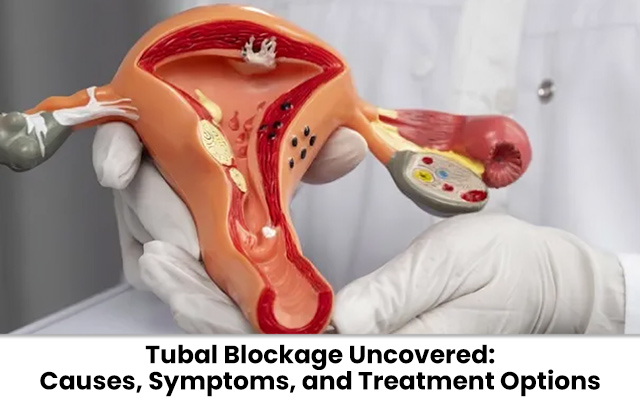Trying to conceive and not getting results can be frustrating. One possible reason that’s often overlooked is a blocked fallopian tube.
It’s more common than you might think and can quietly affect fertility without showing clear signs. The good news is that it is treatable.
Let’s break down what causes tubal blockage, how to spot it and what treatment options are available.
What Is Tubal Blockage?
Tubal blockage means one or both fallopian tubes are partially or fully blocked. These tubes play an important role in helping the egg meet the sperm. If they’re blocked, fertilization becomes difficult or impossible.
What Causes It?
Several factors can lead to a blockage, such as
- Pelvic Infections: Past infections like pelvic inflammatory disease (PID) can cause scarring in the tubes.
- Endometriosis: This condition can lead to tissue growth that blocks or wraps around the tubes.
- Previous Surgeries: Surgeries involving the uterus, fallopian tubes, or ovaries may result in scar tissue.
- Ectopic Pregnancy: A past ectopic pregnancy can damage the tube.
If you’ve experienced any of these, it’s worth discussing with a gynecologist to check your fertility health.
What Are the Symptoms?
Most women don’t notice any signs until they try to conceive. However, some may experience
- Pain in the lower abdomen or pelvis
- Painful periods or intercourse
- Unusual discharge (in cases of infection)
If you’ve been trying to get pregnant for over a year with no success, it’s time to explore the possibility of a blockage.
How Is It Diagnosed?
There are a few safe and effective ways to diagnose tubal blockage, like
- HSG (Hysterosalpingography): A special X-ray done after inserting dye into the uterus to see if the tubes are open.
- Ultrasound or Sonohysterography: Often used to detect fluid buildup or signs of blockage.
- Laparoscopy: A minimally invasive surgery that gives a clear view of the reproductive organs.
These tests help pinpoint the issue and guide the treatment plan.
Treatment Options
Treatment depends on the cause and severity of the blockage:
- Medication: If caused by infection, antibiotics may be prescribed early on.
- Tubal Surgery: For scarred or partially blocked tubes, a procedure may help open them.
- IVF (In Vitro Fertilization): In cases where the blockage is severe or surgery isn’t effective, IVF is often recommended.
A trusted gynecologist will explain your options based on your health and fertility goals.
Conclusion
A blocked tube doesn’t mean you can’t become a parent. With the right care and guidance, many women go on to have healthy pregnancies.
If you’re looking for expert advice, Dr. Pallab Roy, a leading gynecologist in Kolkata offers compassionate, expert care with a personalized approach to every case.If you suspect a tubal issue or have concerns about fertility, don’t wait, schedule a consultation with Dr. Pallab Roy and take the first step toward understanding your body and planning your future with confidence.

